All bios current as of 2019.
Martin Abbott
Martin Abbott is a Ph.D. student in the Department of Science and Technology Studies at Cornell University. His research focuses on how new and emerging technologies and environmental change intersect in the city. Martin holds a Master of Architecture from the University of Technology, Sydney, and a Master of Arts in Political Sociology from Sciences Po Paris.

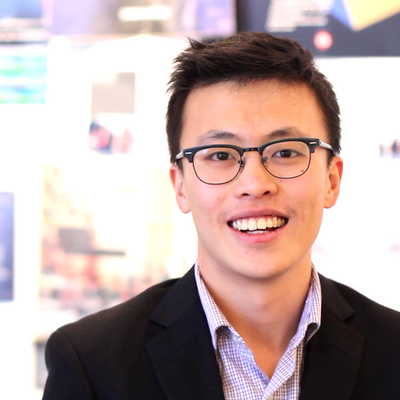
Larry Au
Larry Au is a Ph.D. candidate in sociology at Columbia University. His dissertation examines the rise of precision medicine—the use of genomics and other big data approaches to improve diagnosis and treatment—in China and the United States. His work broadly focuses on the diffusion of the concept and its associated technologies, the construction of debates around ethical, legal, and social issues are constructed locally and globally, and controversies around human gene editing and the modernization of traditional medicines.
Marissa Bell
Marissa Bell is a Ph.D. candidate in the Department of Geography at SUNY University at Buffalo. Her research draws from energy justice, environmental governance, and the political economy of risk. Her dissertation examines procedure and perceptions of legitimacy in the implementation of consent-based nuclear waste siting in Ontario, Canada. She holds a BA in Geography from King’s College London, an MA in Economic Geography from the University at Buffalo, and has past research experience involving local opposition to wind turbine installation in upstate New York, nuclear risk perception post-Fukushima, and contested geopolitical identity during Croatia’s EU accession.


Marie Bernal
Marie Bernal is originally from Mexico City. An architect by training, she practiced luxury residential and luxury retail design after graduating from the University of Notre Dame. She has always had a passion for teaching and, seeking to become a full time academic, she began her postgraduate studies at the Hong Kong University of Science and Technology. She is currently a Ph.D. candidate in the division of Public Policy, and her research focuses on the effect of risk perception and mental models of risk on regulation. She is particularly interested in emergent risk regulation and management in the chemical and pharmaceutical sectors.
Ulrika Bjare
Ulrika Bjare is a Ph.D. candidate in History of Science, Technology and Environment at the Royal Institute of Technology (KTH), Sweden. She has a background in political science and studies the interaction between science, the surrounding society, policy-making and governance. Her dissertation focuses on university governance and researchers’ perceptions of steering and autonomy in relation to academic practices. In parallel to her studies, she works as an Analyst at the President’s Office at Stockholm University and has worked as Special Adviser at the Swedish Ministry for Education and Research.
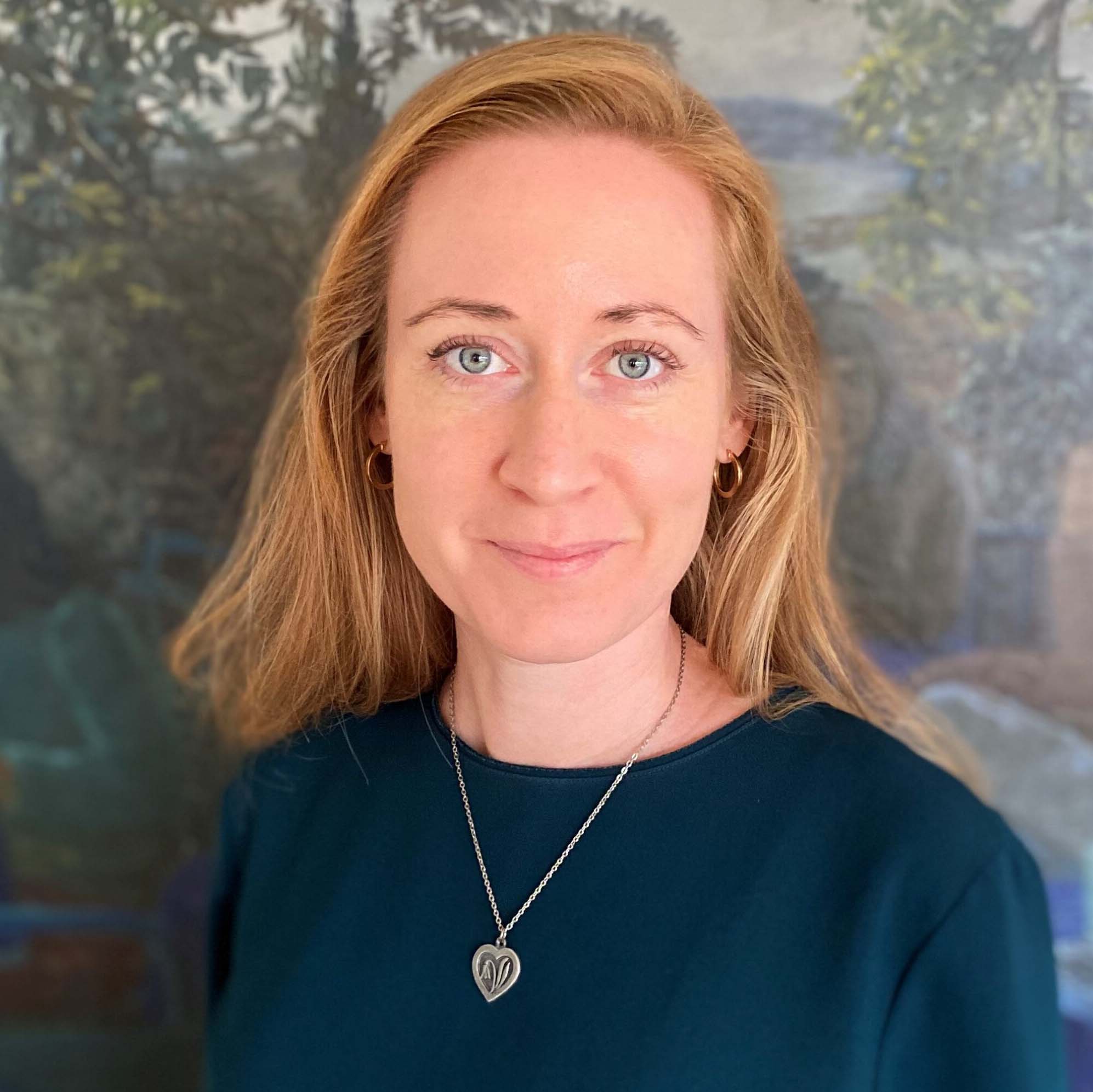
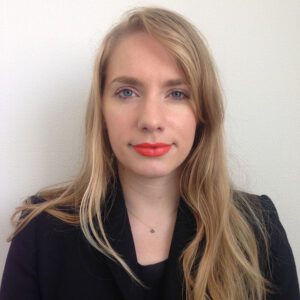
Misha Bykowski
Misha Bykowski is a Ph.D. Candidate in Anthropology at Stanford University. Her research asks how the expansion of home security in contemporary Japan reflects changing attitudes regarding the country’s safety—from a once-free good produced through strong community ties, to a commodity residents now purchase. Through the lens of private security products, her work examines how locks, intercoms, and sensors articulate new norms of protection, showing how the home’s securitization not only reflects changing crime rates, but maps onto pressing concerns over demographic shifts, social atomization, illegal aliens, and changing family structures.
David C. Eisenhauer
David Eisenhauer’s research focuses in the New Jersey shore region and combines theories and methods from human geography, the environmental humanities, science and technology studies, and political theory to examine the drivers of climate vulnerability, as well as to identify strategies for fostering sustainable development pathways. Currently, he is working on two research projects. The first is a historical study of how the prevailing sociotechnical imaginary of the Jersey Shore emerged during the past two centuries. The second is an ethnographic study of emerging alternative coastal management strategies that are capable of responding to the social and ecological urgencies of the Anthropocene.
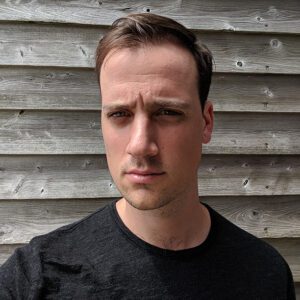

Kieran Findlater
Kieran Findlater is a postdoctoral research fellow at the University of British Columbia (UBC), affiliated with the Institute for Resources, Environment and Sustainability, and the School of Public Policy and Global Affairs. He has 14 years of experience in policy-relevant research related to climate change, including projects on climate services for institutional decision making, biotech-enabled adaptation policy in the forestry sector, farmers’ climate-adaptive decision making, and public perceptions of environmental and health risks. He holds a Ph.D. in Resources, Environment and Sustainability and an M.Sc. in Resource Management and Environmental Studies, both from UBC, as well as a B.Sc. in Biological Sciences / Earth and Atmospheric Sciences from the University of Alberta.
Ekin Genç
Ekin Genç has a professional and academic background in public policy. Graduating with an MSc in Philosophy and Public Policy from LSE in 2014, he spent two years working in Brussels and Washington before setting up a policy consulting company in London, through which he is currently working with clients such as the UK government, UNICEF, and Al Jazeera. In preparation for his DPhil (Ph.D.), he is also reading for an MSc in Social Science of the Internet at the University of Oxford. He is a Fellow at Newspeak House, an emerging “college of political technologists” in London.
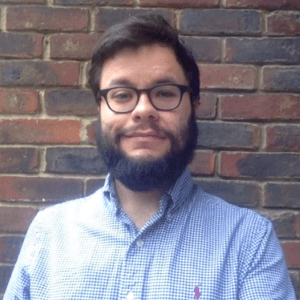
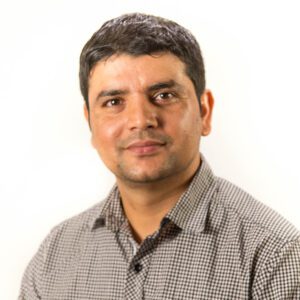
Rajiv Ghimire
Rajiv Ghimire is a fourth year Ph.D. student in Human and Social Dimensions of Science and Technology at Arizona State University. His background is in Environmental Science and he is an international student from Nepal. He is fascinated by novel ideas such as Climate Smart Agriculture, however, he fears that many such programs (and experts involved) see people as passive recipients of technology and he sees the need for collaboration, engagement, and citizen science. His Ph.D. research focuses on the food-energy-water nexus to explore how experts contribute to policy decisions. Whose science counts, and how can we involve lay people?
Karen Huang
Karen Huang is a Ph.D. candidate in Organizational Behavior with a secondary field in Science, Technology and Society (STS) at Harvard University. Karen is also a Fellow in the STS Program at Harvard and a Fellow at the Berkman Klein Center for Internet and Society. Karen’s research examines expertise and techno-optimism within engineering and entrepreneurial communities, and the development of micro-targeting practices in predicting and influencing human behavior. She holds a M.A. in Psychology from Harvard University, and a B.A. in Ethics, Politics and Economics, with a concentration in phenomenology, from Yale University.
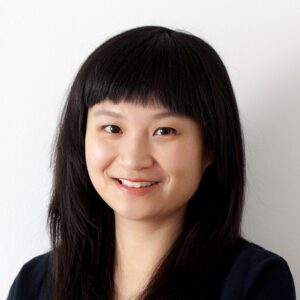

Alana Lajoie-O’Malley
Alana Lajoie-O’Malley is a Ph.D. student in Sociology at the University of Ottawa. She is interested in how science and expertise are deployed by actors engaging with environmental controversies, especially climate change. She arrived at this interest through a decade working with universities, government, and NGOs on environmental and climate projects, most recently as Senior Advisor, Research & Sustainability at the University of Winnipeg and as co-founder of a community climate justice organization. She holds a BA and BSc from the University of Winnipeg as well as an MPhil from the University of Oxford.
Mikey McGovern
Mikey McGovern studies the histories of classification and quantification in the human sciences and technology in twentieth-century United States. Beginning in the 1960s, his dissertation project follows “statistical discrimination” as a concept within the American social sciences and courts. As debates raged over the death penalty, employment discrimination, sentencing standards, and affirmative action, organizations and experts across the political spectrum drew increasingly upon sophisticated statistical analysis to make arguments. They sought a “neutral” middle ground that was quickly eroding beneath their feet. In his work he hopes to bring STS into the history of U.S. racial politics.

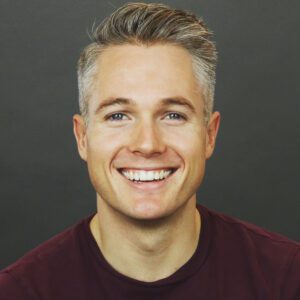
Darius Meadon
Darius Meadon studied politics, law and economics at the University of Cape Town and London School of Economics. He is currently completing an MSc in Social Science of the Internet at the University of Oxford. Darius has worked in marketing and communications for several technology firms and currently works for an AI healthcare technology firm. His research interests centre on the ethical implications of applying AI to medical and genomic data to develop biomarkers and therapeutic innovations.
Beza Merid
Beza Merid (Ph.D., New York University) is a postdoctoral fellow at the University of Michigan affiliated with the Gerald R. Ford School of Public Policy. Merid earned his Ph.D. in Media, Culture, and Communication. He researches how patients and caregivers deploy lived illness experiences as a form of expertise in popular and policy discourses around health care reform. Merid is particularly interested in how illness experiences are used to challenge “expertise barriers” in policy discourses, and in the social conditions necessary for these expert claims to be persuasive in public controversies such as the effort to repeal the Affordable Care Act.


Jonathan Moch
Jonathan Moch is a Ph.D. candidate in Earth and Planetary Sciences at Harvard University, with a Secondary Field in Science, Technology and Society (STS). Jonathan’s research interests center on the interactions between climate change and atmospheric chemistry. Jonathan is also keenly interested in the intersection of science and policy, and he previously worked at the World Resources Institute in Washington, DC. Jonathan holds a S.M. in Environmental Science and Engineering from Harvard and an A.B. with high honors from the Department of Geosciences and the Woodrow Wilson School of Public and International Affairs at Princeton.
Manny Moss
Emanuel Moss is a research assistant on the Pervasive Data Ethics for Computational Research (PERVADE) project, and a member of the AI on the Ground Initiative (AIGI) at the Data & Society Research Institute. He is a doctoral candidate in cultural anthropology at the CUNY Graduate Center, where he is studying machine learning from an ethnographic perspective and the role of data scientists as producers of knowledge. He is particularly interested in how data science, machine learning, and artificial intelligence are shaped by organizational, economic, and ethical prerogatives. Emanuel holds a B.A. from the University of Illinois and an M.A. from Brandeis University. He has worked as a digital and spatial information specialist in the United States and Turkey.

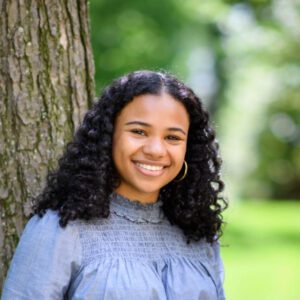
Cierra Robson
Hailing from Boston, Cierra Robson is a Ph.D. student in the Sociology and Social Policy program. She holds a B.A. in African American Studies from Princeton University, where she specialized in studies of race and public policy and pursued a minor in Technology and Society. She is interested in how technological advancements both reinforce and revolutionize the American racial order. She asks how modern public-private collaborations both solidify and make profitable existing power hierarchies. She aims to use her research to conceptualize what meaningful regulation of Big Tech might look like.
Lucy Rodina
Lucy Rodina holds a Ph.D. in Resources, Environment and Sustainability (2018) from the Institute for Resources Environment and Sustainability. In her doctoral work she studied the intersection of water governance, resilience and environmental justice in urban contexts using qualitative and quantitative methods and a case study from Cape Town, South Africa. She has an M.A. in Resource Management and Environmental Studies and a B.A. in International Relations. In her Master’s research she studied water governance and the human right to water in South Africa. She has also worked on water development projects in Nepal, focused on building irrigation canals and shaping strategies for future community development projects.

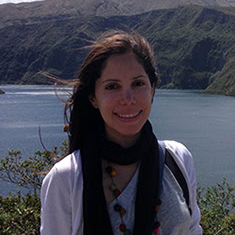
Lara Rodriguez-Delgado
Lara Rodriguez-Delgado is a Ph.D. candidate in anthropology at George Washington University. She received a bachelor’s degree in communications from the University of Puerto Rico and two master’s degrees—in American studies and Anthropology—from the City University of New York (CUNY). At CUNY, she focused on the politics of labor activism and collective action in a lawsuit involving undocumented fine-dining workers. Lara continues to work on social movements and controversial technologies by examining how environmental action took shape in reaction to increased seismicity related to fracking in Oklahoma. Her ongoing research, funded by the Wenner-Gren Foundation, the Social Science Research Council, and the U.S. Geological Survey, examines the cultural and political salience of contemporary geology amid the controversial legacies and futures of oil and gas extraction in the U.S.
Alberto de Salvatierra
Alberto de Salvatierra is an assistant professor of urbanism and data in architecture at the University of Calgary’s School of Architecture, Planning and Landscape, director of the Center for Civilization—a design research lab and international think tank, the founding principal of PROXIIMA, and a Global Shaper at the Calgary Hub of the Global Shapers Community—an initiative by the World Economic Forum based in Geneva, Switzerland.
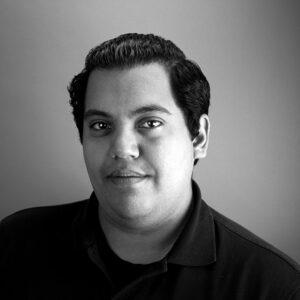
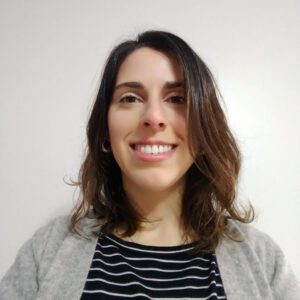
Mariana C. Smulski
Mariana Smulski is a Postdoctoral Researcher in the Unit of Applied Neurobiology and fellow of the National Council of Scientific and Technic Research in Argentina. She is studying controversies involving the implementation of neuroscientific evidence in educational practices and state policies. She holds a Ph.D. in Anthropology from the University of Buenos Aires. Her past and current projects focus on neuroscientific knowledge production, validation and circulation. This includes studies of children´s cognitive development in contexts of poverty and intervention programs designed to enhance cognition. She is a member of the Anthropology of S&T research team at the University of Buenos Aires.
Nitin Verma
Nitin Verma is a Ph.D. student in the School of Information at the University of Texas at Austin. His research explores the nature of misinformation in politics and science by studying the relationship between human values, knowledge formation, language, and communication. He has led research that has shown how trust in science news stories is influenced by human values, political, frequency of social media use, and the news outlets reporting the stories. Nitin is also interested in studying the closely related topic of pseudo-science and has conducted (unpublished) qualitative research on knowledge formation in a local astrology community.
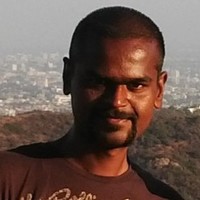

Lydia Zemke
Lydia Zemke has over seven years of experience at the UN Environment Programme, where she worked on policy issues at the intersection of environment, innovation and governance for the achievement of the 2030 Sustainable Development Agenda. Her experience provided extensive insight into the implementation of global environmental objectives in partnership with governments, organizations, multilateral development banks, business and NGOs. Lydia’s academic background is in Political Science, Development Studies (BA) and Project Management (M.Eng). Lydia is currently pursuing studies in Science, Technology, Engineering and Public Policy (UCL) where she is examining innovative approaches for the transition to a low-carbon, green economy. She is a Policy Fellow at the Centre for Science and Policy, University of Cambridge.
The notions of co-production and framing are particularly powerful ways of thinking through how we could engender trust in expertise and in democratic systems. I found [these theoretical frameworks] particularly useful … [in] think[ing] through important new technologies and scientific discoveries.
Darius, 2019 Participant


